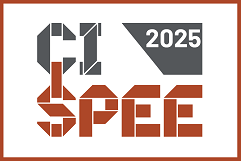WS02 - Applied Gamification in Engineering Education
Overview: This workshop aims to explore the potential of gamification as a powerful tool in engineering education and other fields. By leveraging elements of game design such as competition, rewards, challenges, and storytelling, educators can create engaging and meaningful learning experiences that motivate students and improve outcomes. Gamification offers an innovative way to approach traditional learning challenges, especially within the often-demanding context of engineering education, which can benefit significantly from active, student-centered engagement. Participants in this workshop will gain practical insights into the principles of gamification, learn about the benefits it brings to the educational process, and engage with real examples of its successful implementation. The session will cover both theoretical concepts and hands-on activities to provide participants with a well-rounded understanding of how gamification can be integrated into their own teaching practices to foster active learning and student motivation.
Target Audience: This workshop is designed for educators, particularly those teaching in engineering or technical fields, who are interested in gaining a foundational understanding of how to apply gamification in their courses. It is also suitable for those who have already experimented with basic gamification techniques and are looking to share their experiences, discuss outcomes, and exchange ideas with colleagues on more advanced or effective approaches.
Objectives:To better understand the potential of gamification in education, it is essential to first grasp its core principles and the role it plays in enhancing learning experiences. Gamification, by integrating game elements, offers strategies that boost student engagement and motivation, making learning more dynamic and appealing. Furthermore, by exploring practical examples of gamified activities specifically within engineering education, it becomes evident how these methods can be tailored to meet the unique demands and challenges of more technical fields. This approach allows educators to learn how to design and implement foundational gamification strategies that foster meaningful engagement and motivation in students, effectively integrating gamified principles into the teaching and learning process.

Fausto Mourato
Fausto Mourato obtained his PhD in Computer Science from FCT/UNL in 2016 and currently holds an Associate Professor position at the Polytechnic Institute of Setúbal. His research primarily focuses on the development of video games, with complementary interests in Extended Reality, Gamification, Serious Games and Human-Computer Interaction. He teaches courses on game design and game programming, as well as other informatic courses where he usually includes principles from game design into the educational process. He also contributed to interdisciplinary projects, such as the development of smart buildings, promoting environmental awareness, preventing of social alienation, among others, applying game design concepts to address diverse challenges.

Martinha Piteira
Martinha Piteira obtained her PhD in Information Sciences and Technologies from the University Institute of Lisbon (ISCTE-IUL) and currently holds an Associate Professor position at the Polytechnic Institute of Setúbal. Her research interests include Information Systems, with a particular focus on Online Learning Systems (e-Learning), Gamification, Educational Games, and Human-Computer Interaction. She is also interested in Usability and Accessibility, Ethics in Information Systems and Artificial Intelligence, and student-centered pedagogical approaches. In her research, Martinha explores the potential of gamified learning environments to enhance programming education. She developed a conceptual framework for gamification implementation, which she applied through the creation of a MOOC for programming students. Her work is published in scientific journals, including the RISTI - Iberian Journal of Systems and Information Technologies (Q3) and the Journal of Information Systems Engineering & Management, as well as in national and international conferences indexed by ISI, Scopus, and Google Scholar.

